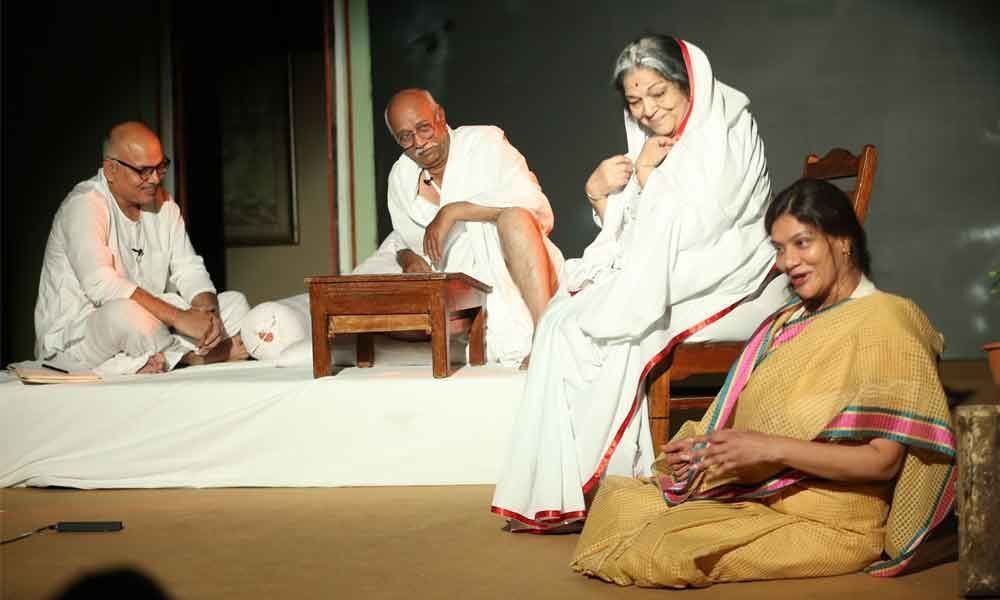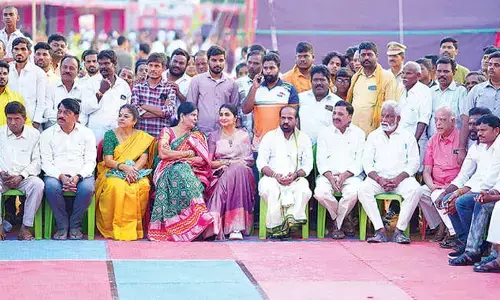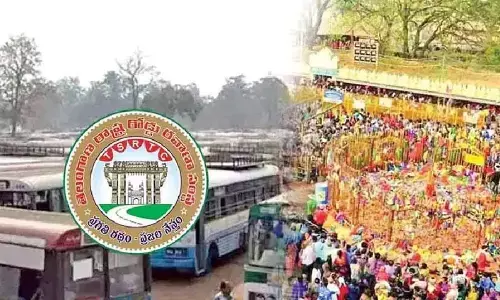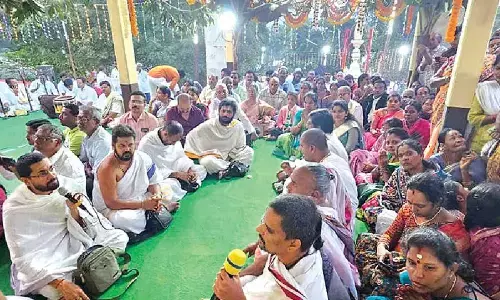Discovering new facets of Kasturba
 Rajiv Kumar as Mahadev Desai, Vijay Prasad as Mahatma Gandhi, Rashmi Seth as Kasturba and Madhu Swaminath as Dr Sushila Nayyar
Rajiv Kumar as Mahadev Desai, Vijay Prasad as Mahatma Gandhi, Rashmi Seth as Kasturba and Madhu Swaminath as Dr Sushila NayyarQadir Ali Baig Theatre Foundation staged its new heritage theatre production, ‘Kasturba’. The play was based on the life of Kasturba Gandhi, her marriage with Mahatma Gandhi, and the days they spent in Aga Khan Palace
The play 'Kasturba' written by RK Paliwal is a tribute to the inspiring personality and it unravels unknown facets of Kasturba Gandhi. The play focuses on the period when the duo was confined at the Aga Khan Palace in Pune.
The play starts with a scene from Aga Khan Palace where Mahatma Gandhi and his close associate Mahadev Desai are writing a letter and Kasturba Gandhi enters with Dr Sushila Nayyar.
Mahatma Gandhi is surprised to see his wife and says asks - 'Who will take care of the ashram if you came to see me?' And Kasturba convinces him that she only came because British government arrested her.
The play is set in the mid-twentieth century during the crucial years of India's freedom movement, post Quit-India movement.
The play showed how Gandhi and his wife, along with their close associates were confined in the palace forcing Gandhi to live with Kasturba and goes on to dwell on the emotional journey in two years of captivity of the couple, before Kasturba Gandhi passed away in confinement.
In the play Mahatma Gandhi tells his wife that he had mentioned that he learnt Satyagraha from his wife Kasturba, who was also the caretaker of their ashram. He tells his grand niece Manu about how his wife knew the food habits of guests visiting them; who preferred coffee over tea or who was fond of tea.
The confinement at Aga Khan Palace was the only time in their life when they spent two years together during the freedom movement. They had four sons and their eldest son Harilal's errant behaviour was a concern to Kasturba.
The play ends with Kasturba's death in jail.
It was a sad end to the great lady whose contribution is not known to many. The play mainly focuses on her role in the freedom struggle and her emotions, contributions and struggles.
The play coincided with Independence Day celebrations and it is also significant to note that this is the 150th year of commemoration of Mahatma Gandhi and Kasturba Gandhi's birth by UNESCO and the Government of India.
The play showcased stellar performances by veterans Rashmi Seth in the titular role of Kasturba, Vijay Prasad as Mahatma Gandhi. Rajiv Kumar as Gandhiji's secretary Mahadev Desai, Snigdha Bawa as grandniece Manuben and Madhu Swaminath as Dr Sushila Nayyar.
The play took the audience to the period between 1942 and 1944 and overall it was a showcase of great performances, especially Rashmi Seth who displayed the various facets of Kasturba's personality, the one's we can only imagine, with such elan that stole the hearts of the audience. Rajiv Kumar as Mahadev too gave an applaudable.

















